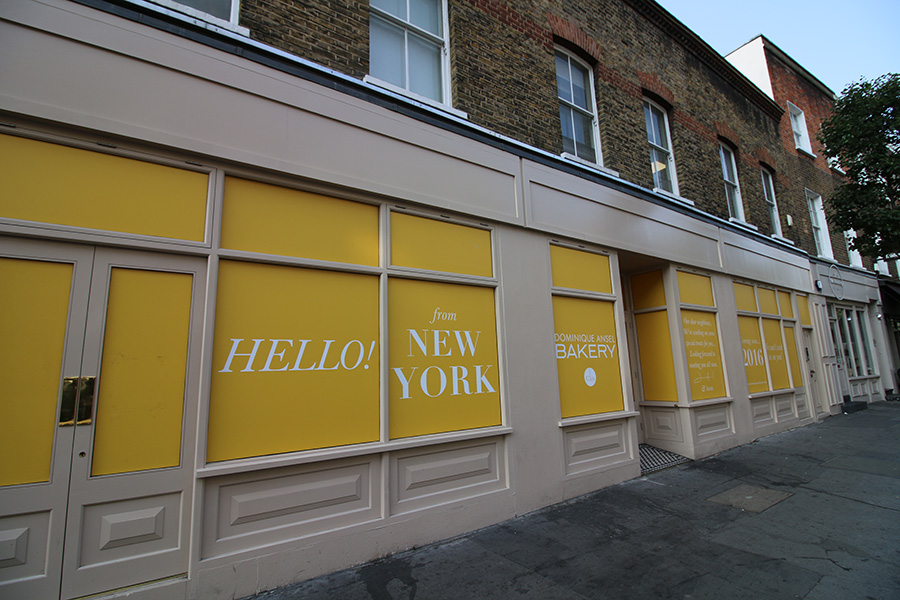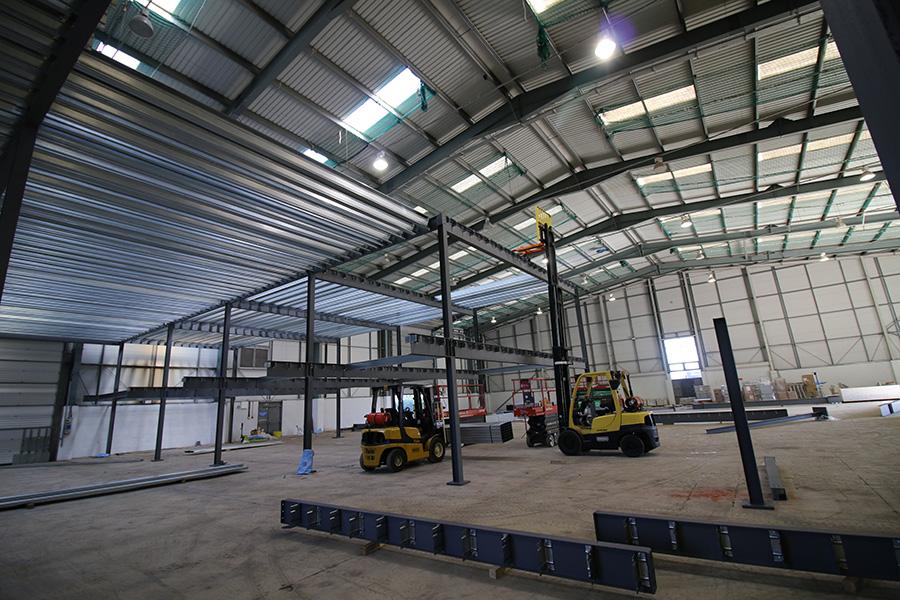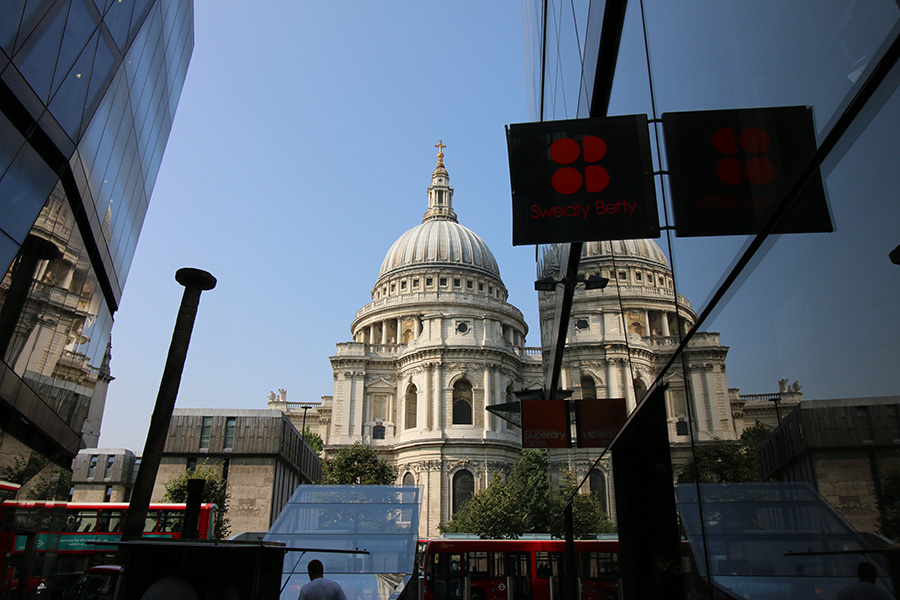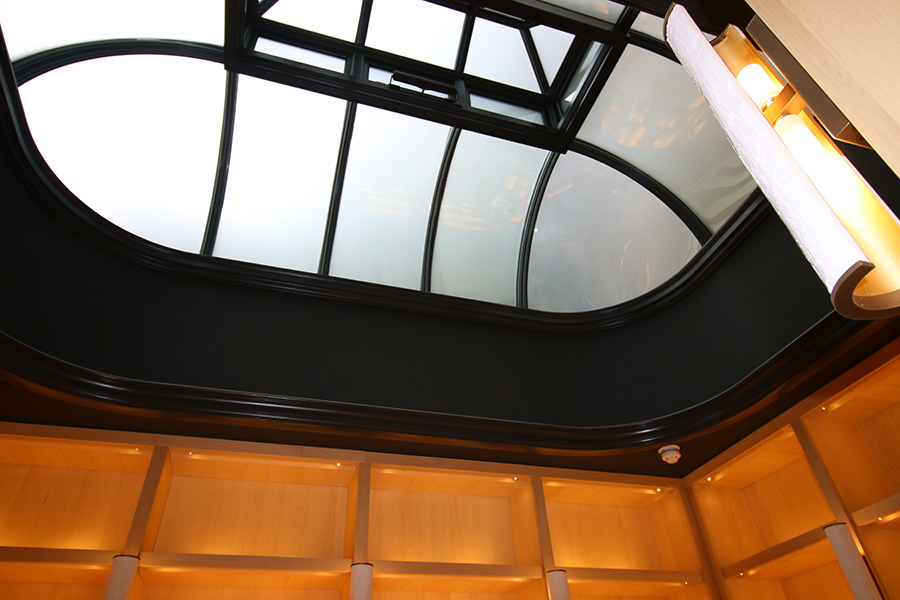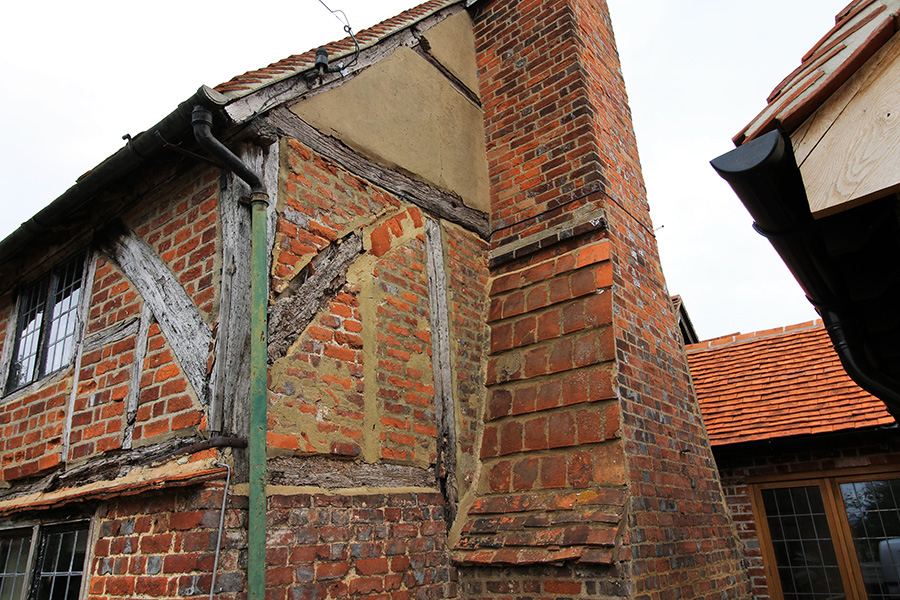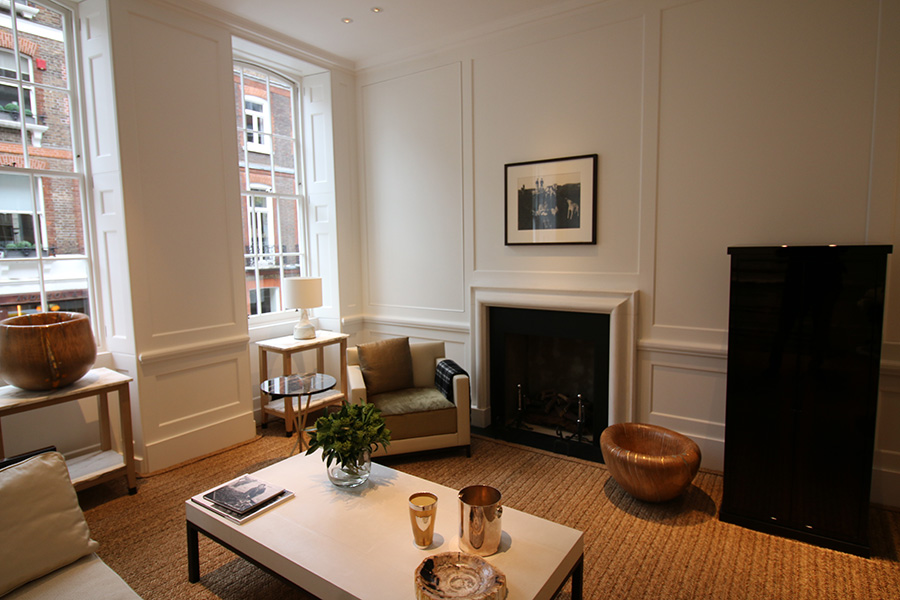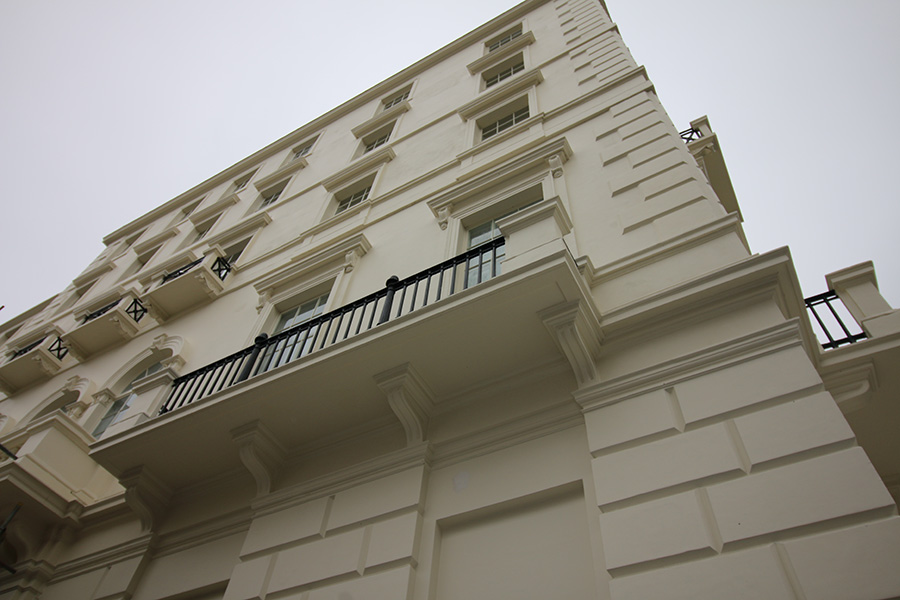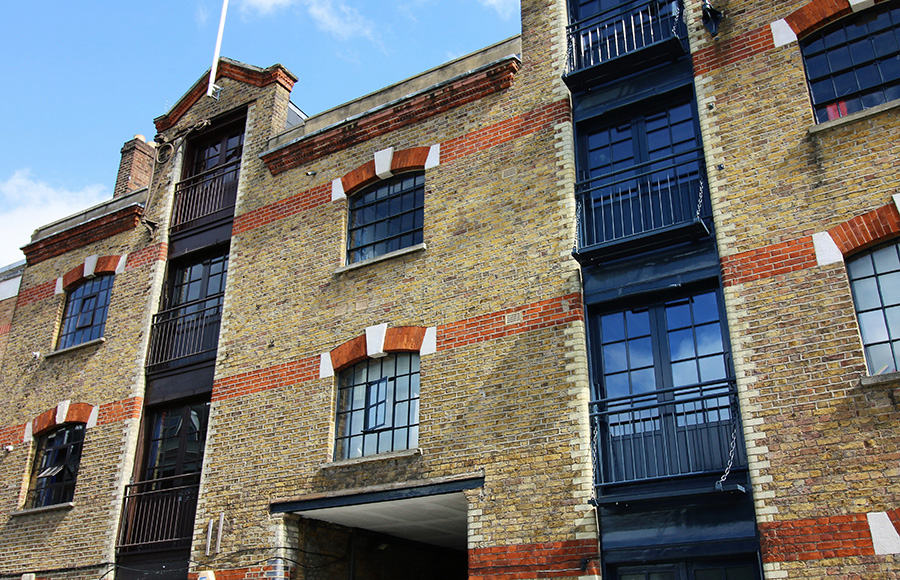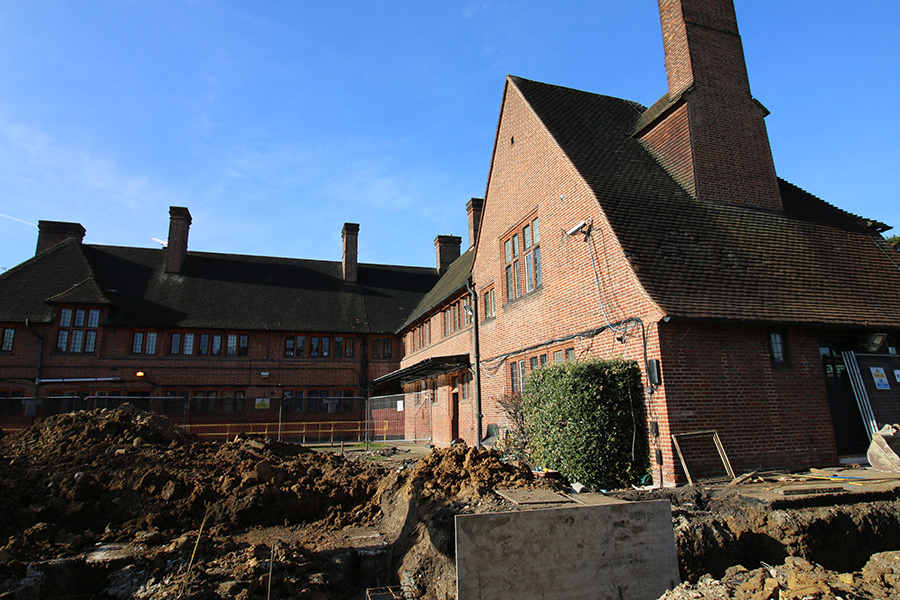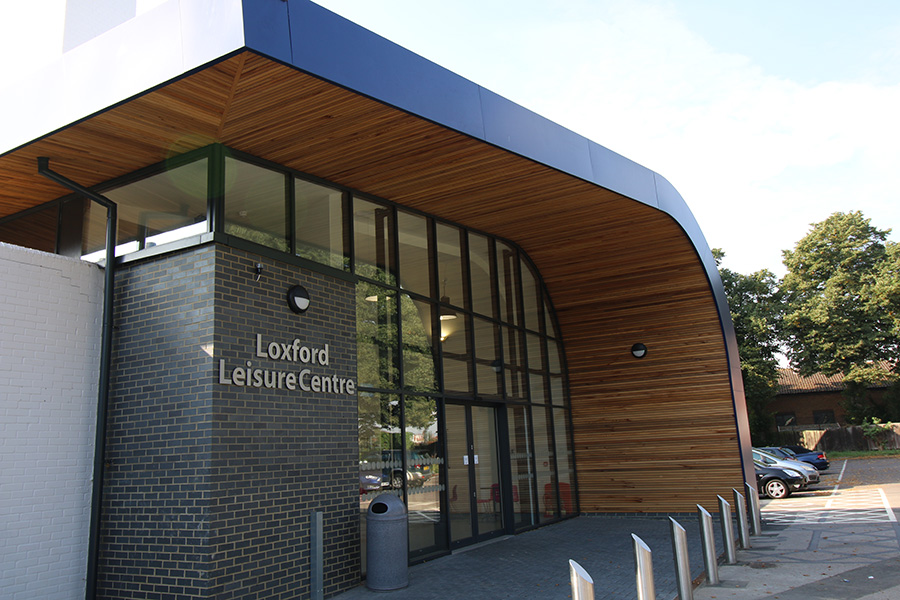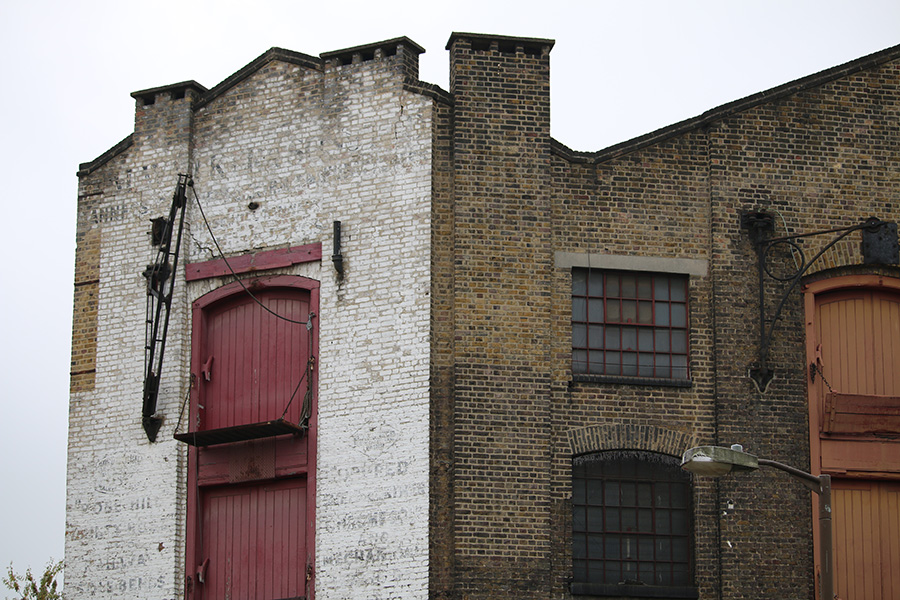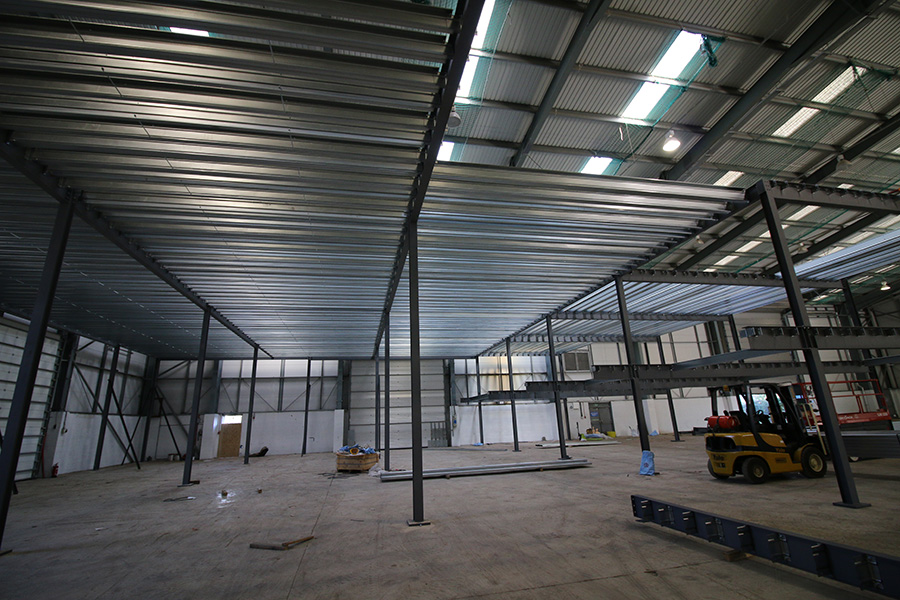
Frequently Asked Questions
General
Building Regulations are rules designed to ensure health, safety, accessibility and energy conservation in and about buildings.
When you instruct ALL BUILDING CONTROL you are appointing us to act on your behalf. As part of the Building Regulations process ALL BUILDING CONTROL will notify your local authority of your intended building work and you may start work just as soon as this Initial Notice has been accepted, usually by default after 5 working days or sooner should we receive acknowledgment from the local authority before that.
After submitting the initial notice to the local authority ALL BUILDING CONTROL takes on the responsibility for plan checking and site inspections. Also, a Fire and a Sewer consultation will be undertaken if the job requires it. If your job is satisfactorily completed, we will issue a Final Certificate. A copy will also be issued to the Local Authority. When you come to sell your property a solicitor or estate agent enquiry will reveal the works were regulated and satisfactorily completed.
Like the planning permission, the Initial Notice will stay active for 3 years once registered however only if works have not started. If the works have started there is no time limit for the works to then be completed. We can issue you a commencement inspection report, as evidence of a start of works within the expiration date of your planning permission.
Our accountants reconcile the invoices once a month. If you want a remittance of your payment contact the office.
“The process of plan checking and subsequent number of site inspections will never guarantee fully compliant buildings but on the whole it ensures a high proportion of building works meets the high standards we have in the UK.
The Building Regulations are not a substitute for a Clerk of Works and in any case generally concerned with the bigger picture being health and safety in and around buildings. You should have a formal contract with a reputable contractor and in the absence of your own knowledge hire a designer or architect to provide quality construction plans for your contractor to build to – doing none of this and simply choosing a contractor based on the lowest price could mean problems during and even after the building works.”
“Some kinds of work carried out to a property may not be building work that is controlled by the Building Regulations but may be work covered by the rules about the Party Wall.
Put simply, the Party Wall is the dividing wall or partition between two properties which is shared by the owners or tenants of each side.
The Party Wall Act introduced a procedure for dealing with disputes between owners of neighbouring properties.
There will be some cases where both the Party Wall Act and the Building Regulations will apply to work being carried out.
You must find out whether work you intend to carry out will be affected by the Party Wall rules.”
You will need planning permission for certain changes to the use of a property such as changing from a residential use to a business use. However, it is possible to change use between some classes without having to make an application for planning permission.
“I have recently moved into a three-bedroom house which has had a loft room constructed. Building Regulations Consent was not obtained before doing this work though we are informed that the works conform to the required standards. How do I go about applying for Building Regulations Consent in retrospect? I know that planning permission was not required.
You will need to contact your local authority Building Control office and apply for a Regularisation Certification for this ‘unauthorised building work’. This could be very disruptive as some of the covered building work may need to be exposed, e.g. to verify the size of a steel beam or the spacing and size of floor joists.”
“The erection or extension of a building.
Renovation of a thermal element e.g. roof replacement, rendering a wall etc.
Change of use of a building e.g. converting a barn to a house etc.
An alteration involving work which will affect the ongoing compliance of the building, service or fitting with the requirements relating to structure, fire, or access to and use of buildings.
The installation or extension of a service or fitting which is controlled under the regulations”
The single biggest advantage is that we can work within all geographical locations but the Local Authorities generally work within the confines of their own borough. This means by using us you don’t need to go through a different process and different inspectors every time you start a new project.
By using a tradesman or installer who is self-certified by way of a competent persons scheme. The most common self-certifications are for electrical works (NICEIC), boilers installations (Gas Safe), windows replacement (FENSA) and cavity wall insulation (CIGA). A full list of schemes can be found on the www.gov.uk website.
All types such as: residential, commercial, mixed use, educational and healthcare. We also work on more niche building types such as rail, infrastructure, listed buildings, and industrial premises. Some buildings are technically exempt such as Railway, MOD and Crown Premises but they tend to comply in any case and ALL BUILDING CONTROL can advise on these as necessary.
Neither ALL BUILDING CONTROL or any other Approved Inspector can approve works that have already commenced, only the Local Authority can do that. If however the work you have started is merely preparatory, stripping out or ground investigative work then we can help but you cannot start the works being regulated until the Initial Notice is confirmed.
You will need to make a Regularisation application to the local authority. This will inevitably involve opening-up works and possibly require provision for other items such as structural calculations and services installation certificates. We offer a service where we can assist you in the process.
Planning Permission rules determine whether you can go ahead with a building project essentially based on Appearance and Use whereas the Building Regulations set technical standards for the design and construction of buildings.
“We are licensed to cover the entire of England and Wales.
We are London based and have surveyors available throughout the country.”
Technical
Part A - Structure
Building Regulations are rules designed to ensure health, safety, accessibility and energy conservation in and about buildings.
When you instruct ALL BUILDING CONTROL you are appointing us to act on your behalf. As part of the Building Regulations process ALL BUILDING CONTROL will notify your local authority of your intended building work and you may start work just as soon as this Initial Notice has been accepted, usually by default after 5 working days or sooner should we receive acknowledgment from the local authority before that.
After submitting the initial notice to the local authority ALL BUILDING CONTROL takes on the responsibility for plan checking and site inspections. Also, a Fire and a Sewer consultation will be undertaken if the job requires it. If your job is satisfactorily completed, we will issue a Final Certificate. A copy will also be issued to the Local Authority. When you come to sell your property a solicitor or estate agent enquiry will reveal the works were regulated and satisfactorily completed.
Like the planning permission, the Initial Notice will stay active for 3 years once registered however only if works have not started. If the works have started there is no time limit for the works to then be completed. We can issue you a commencement inspection report, as evidence of a start of works within the expiration date of your planning permission.
Our accountants reconcile the invoices once a month. If you want a remittance of your payment contact the office.
“The process of plan checking and subsequent number of site inspections will never guarantee fully compliant buildings but on the whole it ensures a high proportion of building works meets the high standards we have in the UK.
The Building Regulations are not a substitute for a Clerk of Works and in any case generally concerned with the bigger picture being health and safety in and around buildings. You should have a formal contract with a reputable contractor and in the absence of your own knowledge hire a designer or architect to provide quality construction plans for your contractor to build to – doing none of this and simply choosing a contractor based on the lowest price could mean problems during and even after the building works.”
“Some kinds of work carried out to a property may not be building work that is controlled by the Building Regulations but may be work covered by the rules about the Party Wall.
Put simply, the Party Wall is the dividing wall or partition between two properties which is shared by the owners or tenants of each side.
The Party Wall Act introduced a procedure for dealing with disputes between owners of neighbouring properties.
There will be some cases where both the Party Wall Act and the Building Regulations will apply to work being carried out.
You must find out whether work you intend to carry out will be affected by the Party Wall rules.”
You will need planning permission for certain changes to the use of a property such as changing from a residential use to a business use. However, it is possible to change use between some classes without having to make an application for planning permission.
“I have recently moved into a three-bedroom house which has had a loft room constructed. Building Regulations Consent was not obtained before doing this work though we are informed that the works conform to the required standards. How do I go about applying for Building Regulations Consent in retrospect? I know that planning permission was not required.
You will need to contact your local authority Building Control office and apply for a Regularisation Certification for this ‘unauthorised building work’. This could be very disruptive as some of the covered building work may need to be exposed, e.g. to verify the size of a steel beam or the spacing and size of floor joists.”
“The erection or extension of a building.
Renovation of a thermal element e.g. roof replacement, rendering a wall etc.
Change of use of a building e.g. converting a barn to a house etc.
An alteration involving work which will affect the ongoing compliance of the building, service or fitting with the requirements relating to structure, fire, or access to and use of buildings.
The installation or extension of a service or fitting which is controlled under the regulations”
The single biggest advantage is that we can work within all geographical locations but the Local Authorities generally work within the confines of their own borough. This means by using us you don’t need to go through a different process and different inspectors every time you start a new project.
By using a tradesman or installer who is self-certified by way of a competent persons scheme. The most common self-certifications are for electrical works (NICEIC), boilers installations (Gas Safe), windows replacement (FENSA) and cavity wall insulation (CIGA). A full list of schemes can be found on the www.gov.uk website.
All types such as: residential, commercial, mixed use, educational and healthcare. We also work on more niche building types such as rail, infrastructure, listed buildings, and industrial premises. Some buildings are technically exempt such as Railway, MOD and Crown Premises but they tend to comply in any case and ALL BUILDING CONTROL can advise on these as necessary.
Neither ALL BUILDING CONTROL or any other Approved Inspector can approve works that have already commenced, only the Local Authority can do that. If however the work you have started is merely preparatory, stripping out or ground investigative work then we can help but you cannot start the works being regulated until the Initial Notice is confirmed.
You will need to make a Regularisation application to the local authority. This will inevitably involve opening-up works and possibly require provision for other items such as structural calculations and services installation certificates. We offer a service where we can assist you in the process.
Planning Permission rules determine whether you can go ahead with a building project essentially based on Appearance and Use whereas the Building Regulations set technical standards for the design and construction of buildings.
“We are licensed to cover the entire of England and Wales.
We are London based and have surveyors available throughout the country.”
Part B - Fire Safety
Building Regulations are rules designed to ensure health, safety, accessibility and energy conservation in and about buildings.
When you instruct ALL BUILDING CONTROL you are appointing us to act on your behalf. As part of the Building Regulations process ALL BUILDING CONTROL will notify your local authority of your intended building work and you may start work just as soon as this Initial Notice has been accepted, usually by default after 5 working days or sooner should we receive acknowledgment from the local authority before that.
After submitting the initial notice to the local authority ALL BUILDING CONTROL takes on the responsibility for plan checking and site inspections. Also, a Fire and a Sewer consultation will be undertaken if the job requires it. If your job is satisfactorily completed, we will issue a Final Certificate. A copy will also be issued to the Local Authority. When you come to sell your property a solicitor or estate agent enquiry will reveal the works were regulated and satisfactorily completed.
Like the planning permission, the Initial Notice will stay active for 3 years once registered however only if works have not started. If the works have started there is no time limit for the works to then be completed. We can issue you a commencement inspection report, as evidence of a start of works within the expiration date of your planning permission.
Our accountants reconcile the invoices once a month. If you want a remittance of your payment contact the office.
“The process of plan checking and subsequent number of site inspections will never guarantee fully compliant buildings but on the whole it ensures a high proportion of building works meets the high standards we have in the UK.
The Building Regulations are not a substitute for a Clerk of Works and in any case generally concerned with the bigger picture being health and safety in and around buildings. You should have a formal contract with a reputable contractor and in the absence of your own knowledge hire a designer or architect to provide quality construction plans for your contractor to build to – doing none of this and simply choosing a contractor based on the lowest price could mean problems during and even after the building works.”
“Some kinds of work carried out to a property may not be building work that is controlled by the Building Regulations but may be work covered by the rules about the Party Wall.
Put simply, the Party Wall is the dividing wall or partition between two properties which is shared by the owners or tenants of each side.
The Party Wall Act introduced a procedure for dealing with disputes between owners of neighbouring properties.
There will be some cases where both the Party Wall Act and the Building Regulations will apply to work being carried out.
You must find out whether work you intend to carry out will be affected by the Party Wall rules.”
You will need planning permission for certain changes to the use of a property such as changing from a residential use to a business use. However, it is possible to change use between some classes without having to make an application for planning permission.
“I have recently moved into a three-bedroom house which has had a loft room constructed. Building Regulations Consent was not obtained before doing this work though we are informed that the works conform to the required standards. How do I go about applying for Building Regulations Consent in retrospect? I know that planning permission was not required.
You will need to contact your local authority Building Control office and apply for a Regularisation Certification for this ‘unauthorised building work’. This could be very disruptive as some of the covered building work may need to be exposed, e.g. to verify the size of a steel beam or the spacing and size of floor joists.”
“The erection or extension of a building.
Renovation of a thermal element e.g. roof replacement, rendering a wall etc.
Change of use of a building e.g. converting a barn to a house etc.
An alteration involving work which will affect the ongoing compliance of the building, service or fitting with the requirements relating to structure, fire, or access to and use of buildings.
The installation or extension of a service or fitting which is controlled under the regulations”
The single biggest advantage is that we can work within all geographical locations but the Local Authorities generally work within the confines of their own borough. This means by using us you don’t need to go through a different process and different inspectors every time you start a new project.
By using a tradesman or installer who is self-certified by way of a competent persons scheme. The most common self-certifications are for electrical works (NICEIC), boilers installations (Gas Safe), windows replacement (FENSA) and cavity wall insulation (CIGA). A full list of schemes can be found on the www.gov.uk website.
All types such as: residential, commercial, mixed use, educational and healthcare. We also work on more niche building types such as rail, infrastructure, listed buildings, and industrial premises. Some buildings are technically exempt such as Railway, MOD and Crown Premises but they tend to comply in any case and ALL BUILDING CONTROL can advise on these as necessary.
Neither ALL BUILDING CONTROL or any other Approved Inspector can approve works that have already commenced, only the Local Authority can do that. If however the work you have started is merely preparatory, stripping out or ground investigative work then we can help but you cannot start the works being regulated until the Initial Notice is confirmed.
You will need to make a Regularisation application to the local authority. This will inevitably involve opening-up works and possibly require provision for other items such as structural calculations and services installation certificates. We offer a service where we can assist you in the process.
Planning Permission rules determine whether you can go ahead with a building project essentially based on Appearance and Use whereas the Building Regulations set technical standards for the design and construction of buildings.
“We are licensed to cover the entire of England and Wales.
We are London based and have surveyors available throughout the country.”
Part C - Site preparation and resistance to contaminates and moisture
Building Regulations are rules designed to ensure health, safety, accessibility and energy conservation in and about buildings.
When you instruct ALL BUILDING CONTROL you are appointing us to act on your behalf. As part of the Building Regulations process ALL BUILDING CONTROL will notify your local authority of your intended building work and you may start work just as soon as this Initial Notice has been accepted, usually by default after 5 working days or sooner should we receive acknowledgment from the local authority before that.
After submitting the initial notice to the local authority ALL BUILDING CONTROL takes on the responsibility for plan checking and site inspections. Also, a Fire and a Sewer consultation will be undertaken if the job requires it. If your job is satisfactorily completed, we will issue a Final Certificate. A copy will also be issued to the Local Authority. When you come to sell your property a solicitor or estate agent enquiry will reveal the works were regulated and satisfactorily completed.
Like the planning permission, the Initial Notice will stay active for 3 years once registered however only if works have not started. If the works have started there is no time limit for the works to then be completed. We can issue you a commencement inspection report, as evidence of a start of works within the expiration date of your planning permission.
Our accountants reconcile the invoices once a month. If you want a remittance of your payment contact the office.
“The process of plan checking and subsequent number of site inspections will never guarantee fully compliant buildings but on the whole it ensures a high proportion of building works meets the high standards we have in the UK.
The Building Regulations are not a substitute for a Clerk of Works and in any case generally concerned with the bigger picture being health and safety in and around buildings. You should have a formal contract with a reputable contractor and in the absence of your own knowledge hire a designer or architect to provide quality construction plans for your contractor to build to – doing none of this and simply choosing a contractor based on the lowest price could mean problems during and even after the building works.”
“Some kinds of work carried out to a property may not be building work that is controlled by the Building Regulations but may be work covered by the rules about the Party Wall.
Put simply, the Party Wall is the dividing wall or partition between two properties which is shared by the owners or tenants of each side.
The Party Wall Act introduced a procedure for dealing with disputes between owners of neighbouring properties.
There will be some cases where both the Party Wall Act and the Building Regulations will apply to work being carried out.
You must find out whether work you intend to carry out will be affected by the Party Wall rules.”
You will need planning permission for certain changes to the use of a property such as changing from a residential use to a business use. However, it is possible to change use between some classes without having to make an application for planning permission.
“I have recently moved into a three-bedroom house which has had a loft room constructed. Building Regulations Consent was not obtained before doing this work though we are informed that the works conform to the required standards. How do I go about applying for Building Regulations Consent in retrospect? I know that planning permission was not required.
You will need to contact your local authority Building Control office and apply for a Regularisation Certification for this ‘unauthorised building work’. This could be very disruptive as some of the covered building work may need to be exposed, e.g. to verify the size of a steel beam or the spacing and size of floor joists.”
“The erection or extension of a building.
Renovation of a thermal element e.g. roof replacement, rendering a wall etc.
Change of use of a building e.g. converting a barn to a house etc.
An alteration involving work which will affect the ongoing compliance of the building, service or fitting with the requirements relating to structure, fire, or access to and use of buildings.
The installation or extension of a service or fitting which is controlled under the regulations”
The single biggest advantage is that we can work within all geographical locations but the Local Authorities generally work within the confines of their own borough. This means by using us you don’t need to go through a different process and different inspectors every time you start a new project.
By using a tradesman or installer who is self-certified by way of a competent persons scheme. The most common self-certifications are for electrical works (NICEIC), boilers installations (Gas Safe), windows replacement (FENSA) and cavity wall insulation (CIGA). A full list of schemes can be found on the www.gov.uk website.
All types such as: residential, commercial, mixed use, educational and healthcare. We also work on more niche building types such as rail, infrastructure, listed buildings, and industrial premises. Some buildings are technically exempt such as Railway, MOD and Crown Premises but they tend to comply in any case and ALL BUILDING CONTROL can advise on these as necessary.
Neither ALL BUILDING CONTROL or any other Approved Inspector can approve works that have already commenced, only the Local Authority can do that. If however the work you have started is merely preparatory, stripping out or ground investigative work then we can help but you cannot start the works being regulated until the Initial Notice is confirmed.
You will need to make a Regularisation application to the local authority. This will inevitably involve opening-up works and possibly require provision for other items such as structural calculations and services installation certificates. We offer a service where we can assist you in the process.
Planning Permission rules determine whether you can go ahead with a building project essentially based on Appearance and Use whereas the Building Regulations set technical standards for the design and construction of buildings.
“We are licensed to cover the entire of England and Wales.
We are London based and have surveyors available throughout the country.”
Part E - Resistance to the passage of sound
Building Regulations are rules designed to ensure health, safety, accessibility and energy conservation in and about buildings.
When you instruct ALL BUILDING CONTROL you are appointing us to act on your behalf. As part of the Building Regulations process ALL BUILDING CONTROL will notify your local authority of your intended building work and you may start work just as soon as this Initial Notice has been accepted, usually by default after 5 working days or sooner should we receive acknowledgment from the local authority before that.
After submitting the initial notice to the local authority ALL BUILDING CONTROL takes on the responsibility for plan checking and site inspections. Also, a Fire and a Sewer consultation will be undertaken if the job requires it. If your job is satisfactorily completed, we will issue a Final Certificate. A copy will also be issued to the Local Authority. When you come to sell your property a solicitor or estate agent enquiry will reveal the works were regulated and satisfactorily completed.
Like the planning permission, the Initial Notice will stay active for 3 years once registered however only if works have not started. If the works have started there is no time limit for the works to then be completed. We can issue you a commencement inspection report, as evidence of a start of works within the expiration date of your planning permission.
Our accountants reconcile the invoices once a month. If you want a remittance of your payment contact the office.
“The process of plan checking and subsequent number of site inspections will never guarantee fully compliant buildings but on the whole it ensures a high proportion of building works meets the high standards we have in the UK.
The Building Regulations are not a substitute for a Clerk of Works and in any case generally concerned with the bigger picture being health and safety in and around buildings. You should have a formal contract with a reputable contractor and in the absence of your own knowledge hire a designer or architect to provide quality construction plans for your contractor to build to – doing none of this and simply choosing a contractor based on the lowest price could mean problems during and even after the building works.”
“Some kinds of work carried out to a property may not be building work that is controlled by the Building Regulations but may be work covered by the rules about the Party Wall.
Put simply, the Party Wall is the dividing wall or partition between two properties which is shared by the owners or tenants of each side.
The Party Wall Act introduced a procedure for dealing with disputes between owners of neighbouring properties.
There will be some cases where both the Party Wall Act and the Building Regulations will apply to work being carried out.
You must find out whether work you intend to carry out will be affected by the Party Wall rules.”
You will need planning permission for certain changes to the use of a property such as changing from a residential use to a business use. However, it is possible to change use between some classes without having to make an application for planning permission.
“I have recently moved into a three-bedroom house which has had a loft room constructed. Building Regulations Consent was not obtained before doing this work though we are informed that the works conform to the required standards. How do I go about applying for Building Regulations Consent in retrospect? I know that planning permission was not required.
You will need to contact your local authority Building Control office and apply for a Regularisation Certification for this ‘unauthorised building work’. This could be very disruptive as some of the covered building work may need to be exposed, e.g. to verify the size of a steel beam or the spacing and size of floor joists.”
“The erection or extension of a building.
Renovation of a thermal element e.g. roof replacement, rendering a wall etc.
Change of use of a building e.g. converting a barn to a house etc.
An alteration involving work which will affect the ongoing compliance of the building, service or fitting with the requirements relating to structure, fire, or access to and use of buildings.
The installation or extension of a service or fitting which is controlled under the regulations”
The single biggest advantage is that we can work within all geographical locations but the Local Authorities generally work within the confines of their own borough. This means by using us you don’t need to go through a different process and different inspectors every time you start a new project.
By using a tradesman or installer who is self-certified by way of a competent persons scheme. The most common self-certifications are for electrical works (NICEIC), boilers installations (Gas Safe), windows replacement (FENSA) and cavity wall insulation (CIGA). A full list of schemes can be found on the www.gov.uk website.
All types such as: residential, commercial, mixed use, educational and healthcare. We also work on more niche building types such as rail, infrastructure, listed buildings, and industrial premises. Some buildings are technically exempt such as Railway, MOD and Crown Premises but they tend to comply in any case and ALL BUILDING CONTROL can advise on these as necessary.
Neither ALL BUILDING CONTROL or any other Approved Inspector can approve works that have already commenced, only the Local Authority can do that. If however the work you have started is merely preparatory, stripping out or ground investigative work then we can help but you cannot start the works being regulated until the Initial Notice is confirmed.
You will need to make a Regularisation application to the local authority. This will inevitably involve opening-up works and possibly require provision for other items such as structural calculations and services installation certificates. We offer a service where we can assist you in the process.
Planning Permission rules determine whether you can go ahead with a building project essentially based on Appearance and Use whereas the Building Regulations set technical standards for the design and construction of buildings.
“We are licensed to cover the entire of England and Wales.
We are London based and have surveyors available throughout the country.”
Part G - Sanitation, hot water safety and water efficiency
Building Regulations are rules designed to ensure health, safety, accessibility and energy conservation in and about buildings.
When you instruct ALL BUILDING CONTROL you are appointing us to act on your behalf. As part of the Building Regulations process ALL BUILDING CONTROL will notify your local authority of your intended building work and you may start work just as soon as this Initial Notice has been accepted, usually by default after 5 working days or sooner should we receive acknowledgment from the local authority before that.
After submitting the initial notice to the local authority ALL BUILDING CONTROL takes on the responsibility for plan checking and site inspections. Also, a Fire and a Sewer consultation will be undertaken if the job requires it. If your job is satisfactorily completed, we will issue a Final Certificate. A copy will also be issued to the Local Authority. When you come to sell your property a solicitor or estate agent enquiry will reveal the works were regulated and satisfactorily completed.
Like the planning permission, the Initial Notice will stay active for 3 years once registered however only if works have not started. If the works have started there is no time limit for the works to then be completed. We can issue you a commencement inspection report, as evidence of a start of works within the expiration date of your planning permission.
Our accountants reconcile the invoices once a month. If you want a remittance of your payment contact the office.
“The process of plan checking and subsequent number of site inspections will never guarantee fully compliant buildings but on the whole it ensures a high proportion of building works meets the high standards we have in the UK.
The Building Regulations are not a substitute for a Clerk of Works and in any case generally concerned with the bigger picture being health and safety in and around buildings. You should have a formal contract with a reputable contractor and in the absence of your own knowledge hire a designer or architect to provide quality construction plans for your contractor to build to – doing none of this and simply choosing a contractor based on the lowest price could mean problems during and even after the building works.”
“Some kinds of work carried out to a property may not be building work that is controlled by the Building Regulations but may be work covered by the rules about the Party Wall.
Put simply, the Party Wall is the dividing wall or partition between two properties which is shared by the owners or tenants of each side.
The Party Wall Act introduced a procedure for dealing with disputes between owners of neighbouring properties.
There will be some cases where both the Party Wall Act and the Building Regulations will apply to work being carried out.
You must find out whether work you intend to carry out will be affected by the Party Wall rules.”
You will need planning permission for certain changes to the use of a property such as changing from a residential use to a business use. However, it is possible to change use between some classes without having to make an application for planning permission.
“I have recently moved into a three-bedroom house which has had a loft room constructed. Building Regulations Consent was not obtained before doing this work though we are informed that the works conform to the required standards. How do I go about applying for Building Regulations Consent in retrospect? I know that planning permission was not required.
You will need to contact your local authority Building Control office and apply for a Regularisation Certification for this ‘unauthorised building work’. This could be very disruptive as some of the covered building work may need to be exposed, e.g. to verify the size of a steel beam or the spacing and size of floor joists.”
“The erection or extension of a building.
Renovation of a thermal element e.g. roof replacement, rendering a wall etc.
Change of use of a building e.g. converting a barn to a house etc.
An alteration involving work which will affect the ongoing compliance of the building, service or fitting with the requirements relating to structure, fire, or access to and use of buildings.
The installation or extension of a service or fitting which is controlled under the regulations”
The single biggest advantage is that we can work within all geographical locations but the Local Authorities generally work within the confines of their own borough. This means by using us you don’t need to go through a different process and different inspectors every time you start a new project.
By using a tradesman or installer who is self-certified by way of a competent persons scheme. The most common self-certifications are for electrical works (NICEIC), boilers installations (Gas Safe), windows replacement (FENSA) and cavity wall insulation (CIGA). A full list of schemes can be found on the www.gov.uk website.
All types such as: residential, commercial, mixed use, educational and healthcare. We also work on more niche building types such as rail, infrastructure, listed buildings, and industrial premises. Some buildings are technically exempt such as Railway, MOD and Crown Premises but they tend to comply in any case and ALL BUILDING CONTROL can advise on these as necessary.
Neither ALL BUILDING CONTROL or any other Approved Inspector can approve works that have already commenced, only the Local Authority can do that. If however the work you have started is merely preparatory, stripping out or ground investigative work then we can help but you cannot start the works being regulated until the Initial Notice is confirmed.
You will need to make a Regularisation application to the local authority. This will inevitably involve opening-up works and possibly require provision for other items such as structural calculations and services installation certificates. We offer a service where we can assist you in the process.
Planning Permission rules determine whether you can go ahead with a building project essentially based on Appearance and Use whereas the Building Regulations set technical standards for the design and construction of buildings.
“We are licensed to cover the entire of England and Wales.
We are London based and have surveyors available throughout the country.”
Part M - Access to and use of buildings
Building Regulations are rules designed to ensure health, safety, accessibility and energy conservation in and about buildings.
When you instruct ALL BUILDING CONTROL you are appointing us to act on your behalf. As part of the Building Regulations process ALL BUILDING CONTROL will notify your local authority of your intended building work and you may start work just as soon as this Initial Notice has been accepted, usually by default after 5 working days or sooner should we receive acknowledgment from the local authority before that.
After submitting the initial notice to the local authority ALL BUILDING CONTROL takes on the responsibility for plan checking and site inspections. Also, a Fire and a Sewer consultation will be undertaken if the job requires it. If your job is satisfactorily completed, we will issue a Final Certificate. A copy will also be issued to the Local Authority. When you come to sell your property a solicitor or estate agent enquiry will reveal the works were regulated and satisfactorily completed.
Like the planning permission, the Initial Notice will stay active for 3 years once registered however only if works have not started. If the works have started there is no time limit for the works to then be completed. We can issue you a commencement inspection report, as evidence of a start of works within the expiration date of your planning permission.
Our accountants reconcile the invoices once a month. If you want a remittance of your payment contact the office.
“The process of plan checking and subsequent number of site inspections will never guarantee fully compliant buildings but on the whole it ensures a high proportion of building works meets the high standards we have in the UK.
The Building Regulations are not a substitute for a Clerk of Works and in any case generally concerned with the bigger picture being health and safety in and around buildings. You should have a formal contract with a reputable contractor and in the absence of your own knowledge hire a designer or architect to provide quality construction plans for your contractor to build to – doing none of this and simply choosing a contractor based on the lowest price could mean problems during and even after the building works.”
“Some kinds of work carried out to a property may not be building work that is controlled by the Building Regulations but may be work covered by the rules about the Party Wall.
Put simply, the Party Wall is the dividing wall or partition between two properties which is shared by the owners or tenants of each side.
The Party Wall Act introduced a procedure for dealing with disputes between owners of neighbouring properties.
There will be some cases where both the Party Wall Act and the Building Regulations will apply to work being carried out.
You must find out whether work you intend to carry out will be affected by the Party Wall rules.”
You will need planning permission for certain changes to the use of a property such as changing from a residential use to a business use. However, it is possible to change use between some classes without having to make an application for planning permission.
“I have recently moved into a three-bedroom house which has had a loft room constructed. Building Regulations Consent was not obtained before doing this work though we are informed that the works conform to the required standards. How do I go about applying for Building Regulations Consent in retrospect? I know that planning permission was not required.
You will need to contact your local authority Building Control office and apply for a Regularisation Certification for this ‘unauthorised building work’. This could be very disruptive as some of the covered building work may need to be exposed, e.g. to verify the size of a steel beam or the spacing and size of floor joists.”
“The erection or extension of a building.
Renovation of a thermal element e.g. roof replacement, rendering a wall etc.
Change of use of a building e.g. converting a barn to a house etc.
An alteration involving work which will affect the ongoing compliance of the building, service or fitting with the requirements relating to structure, fire, or access to and use of buildings.
The installation or extension of a service or fitting which is controlled under the regulations”
The single biggest advantage is that we can work within all geographical locations but the Local Authorities generally work within the confines of their own borough. This means by using us you don’t need to go through a different process and different inspectors every time you start a new project.
By using a tradesman or installer who is self-certified by way of a competent persons scheme. The most common self-certifications are for electrical works (NICEIC), boilers installations (Gas Safe), windows replacement (FENSA) and cavity wall insulation (CIGA). A full list of schemes can be found on the www.gov.uk website.
All types such as: residential, commercial, mixed use, educational and healthcare. We also work on more niche building types such as rail, infrastructure, listed buildings, and industrial premises. Some buildings are technically exempt such as Railway, MOD and Crown Premises but they tend to comply in any case and ALL BUILDING CONTROL can advise on these as necessary.
Neither ALL BUILDING CONTROL or any other Approved Inspector can approve works that have already commenced, only the Local Authority can do that. If however the work you have started is merely preparatory, stripping out or ground investigative work then we can help but you cannot start the works being regulated until the Initial Notice is confirmed.
You will need to make a Regularisation application to the local authority. This will inevitably involve opening-up works and possibly require provision for other items such as structural calculations and services installation certificates. We offer a service where we can assist you in the process.
Planning Permission rules determine whether you can go ahead with a building project essentially based on Appearance and Use whereas the Building Regulations set technical standards for the design and construction of buildings.
“We are licensed to cover the entire of England and Wales.
We are London based and have surveyors available throughout the country.”
Case Studies

All Building Control is London based and nationwide, some of our areas include...
- London
- City Of London
- Kensington
- South Kensington
- Chelsea
- Soho
- Knightsbridge
- Westminster
All Building Control is London based and nationwide, some of our areas include...
- London
- City Of London
- Kensington
- South Kensington
- Chelsea
- Soho
- Knightsbridge
- Westminster

